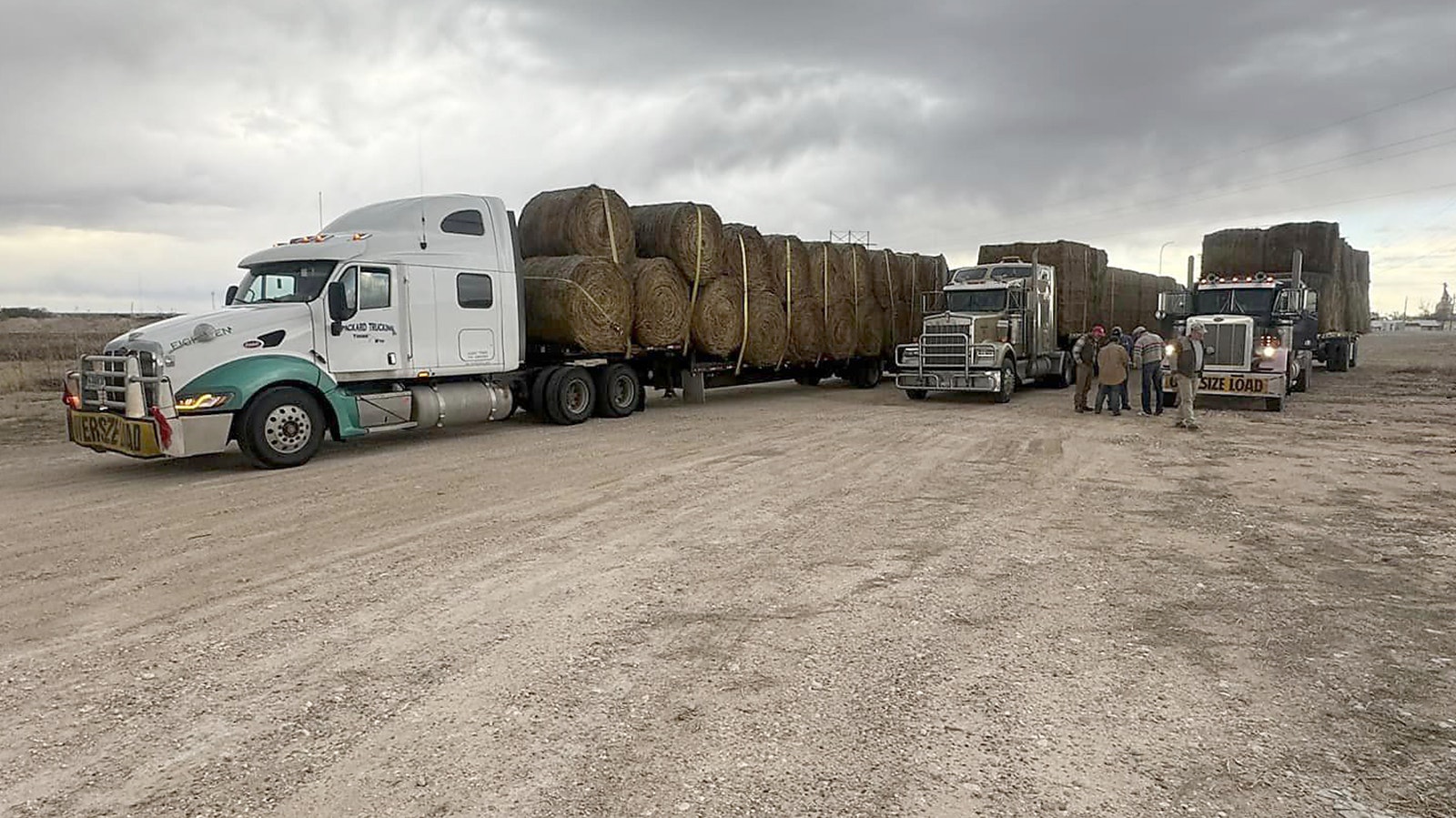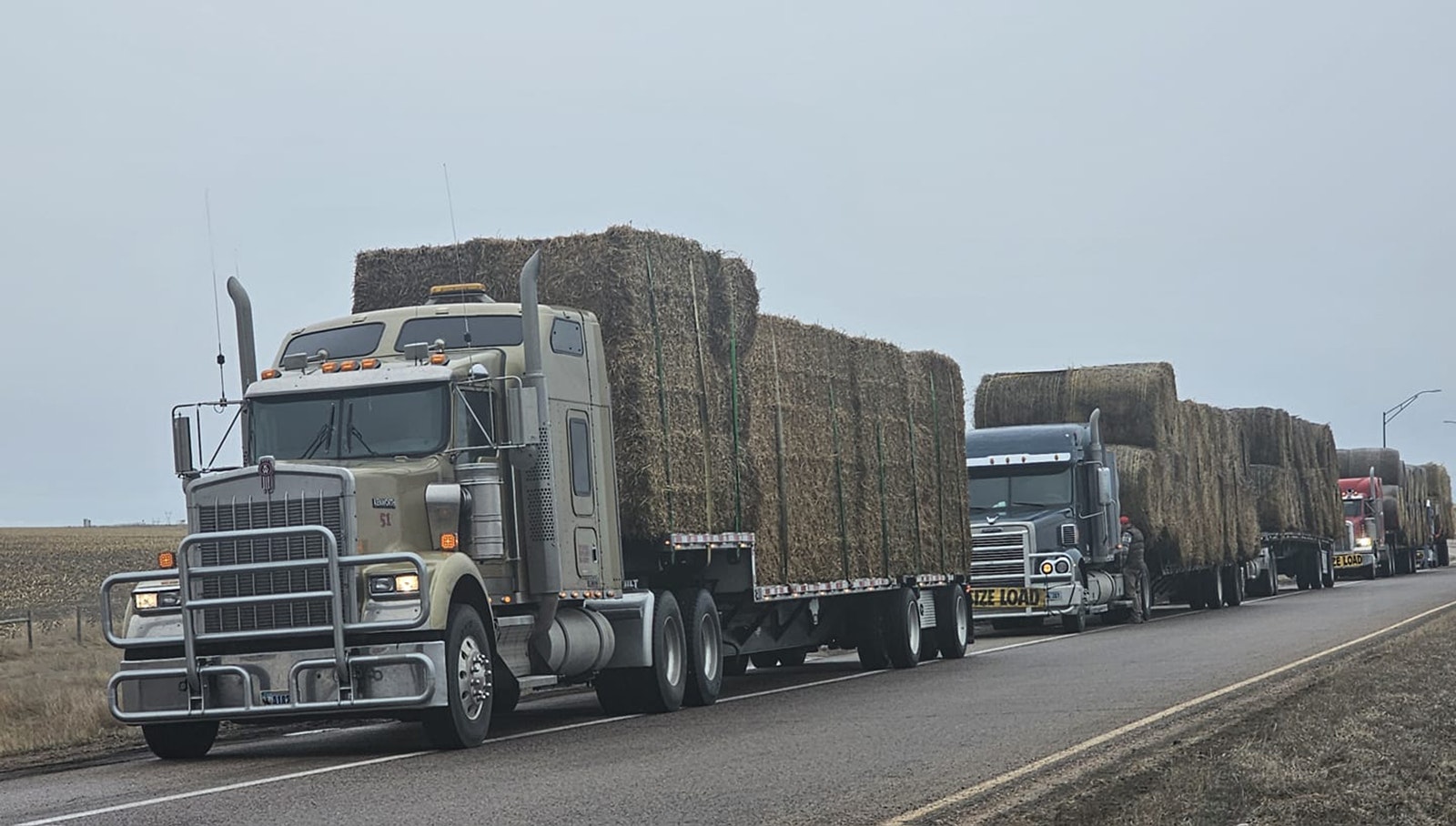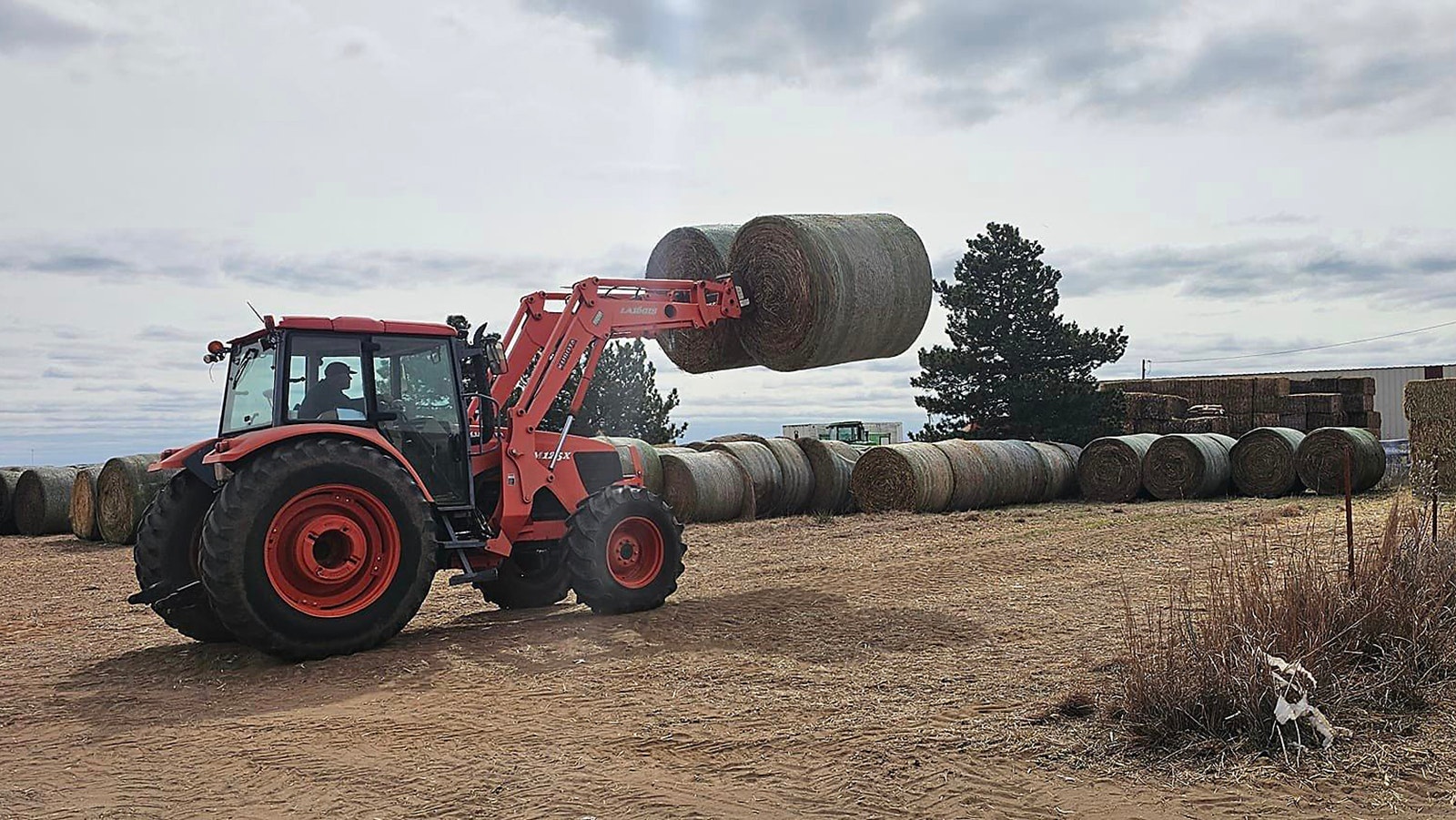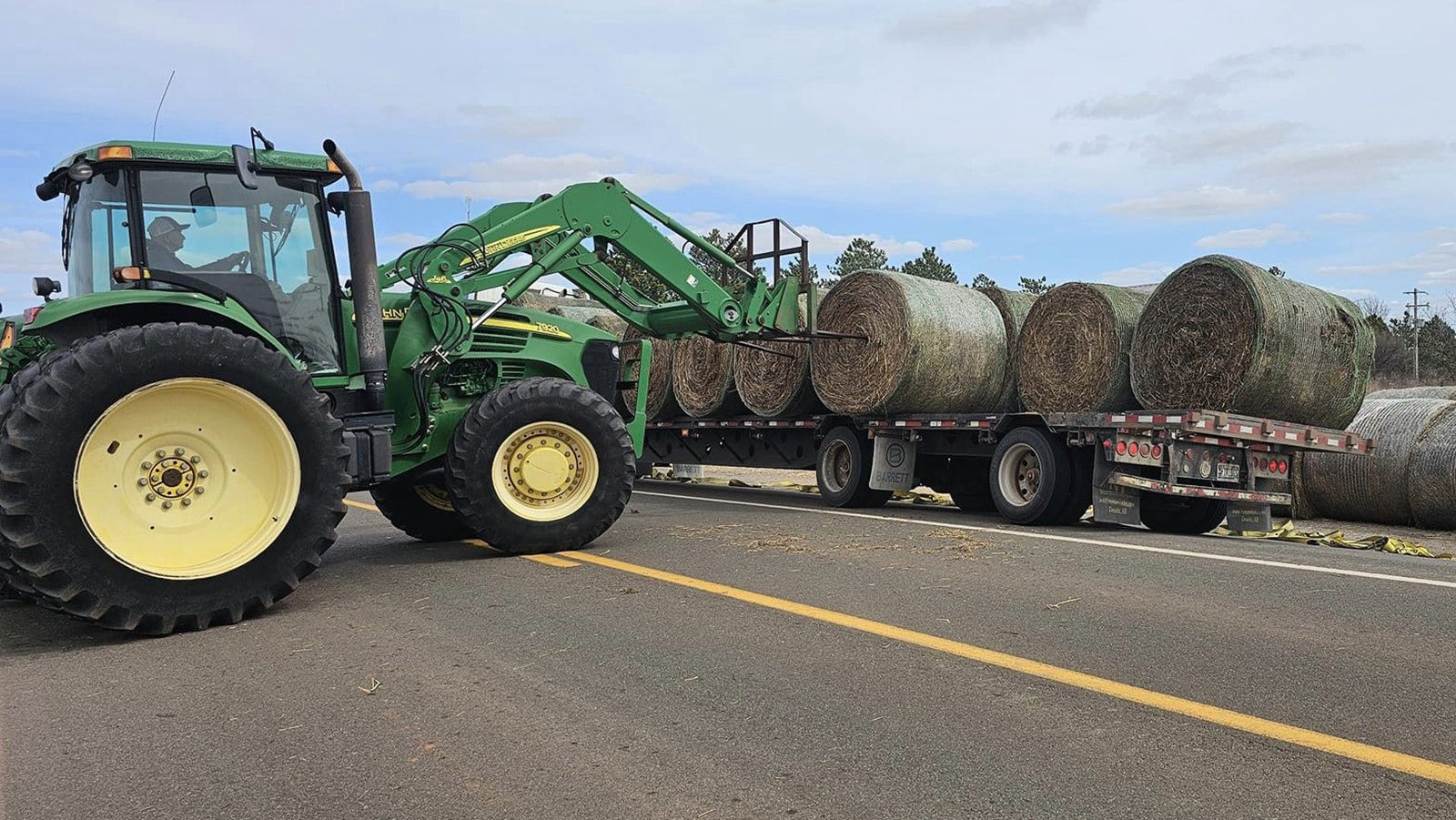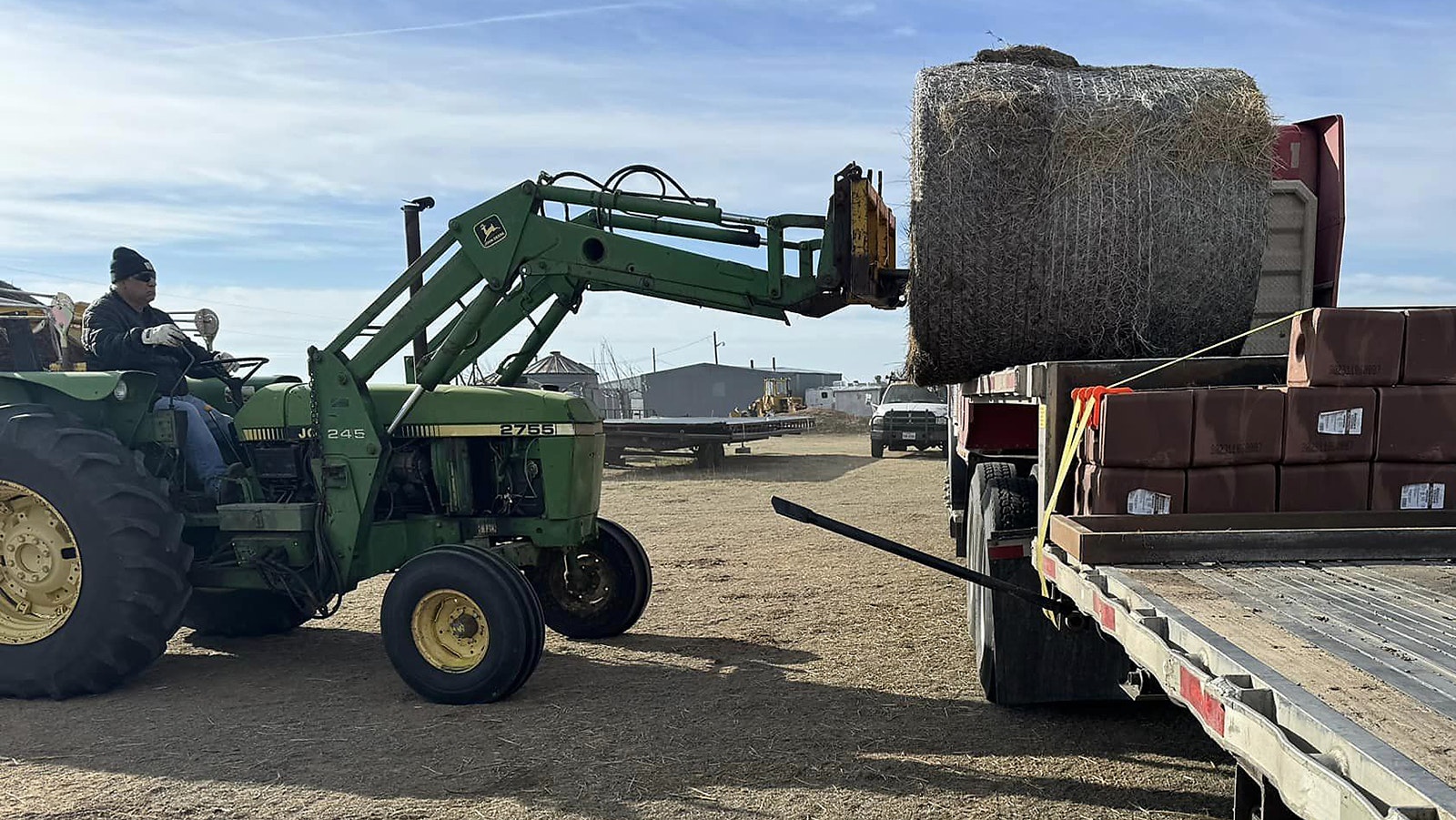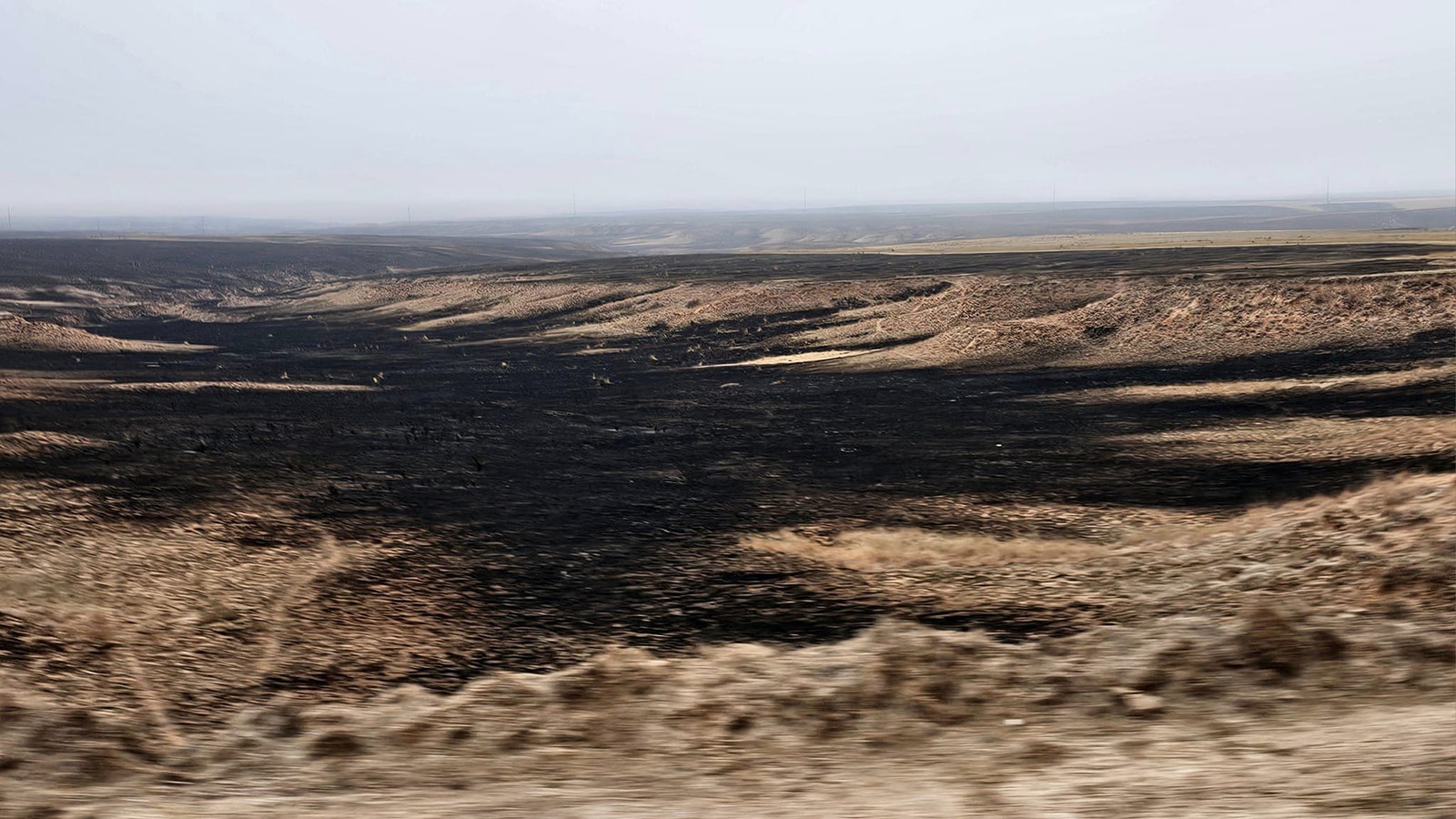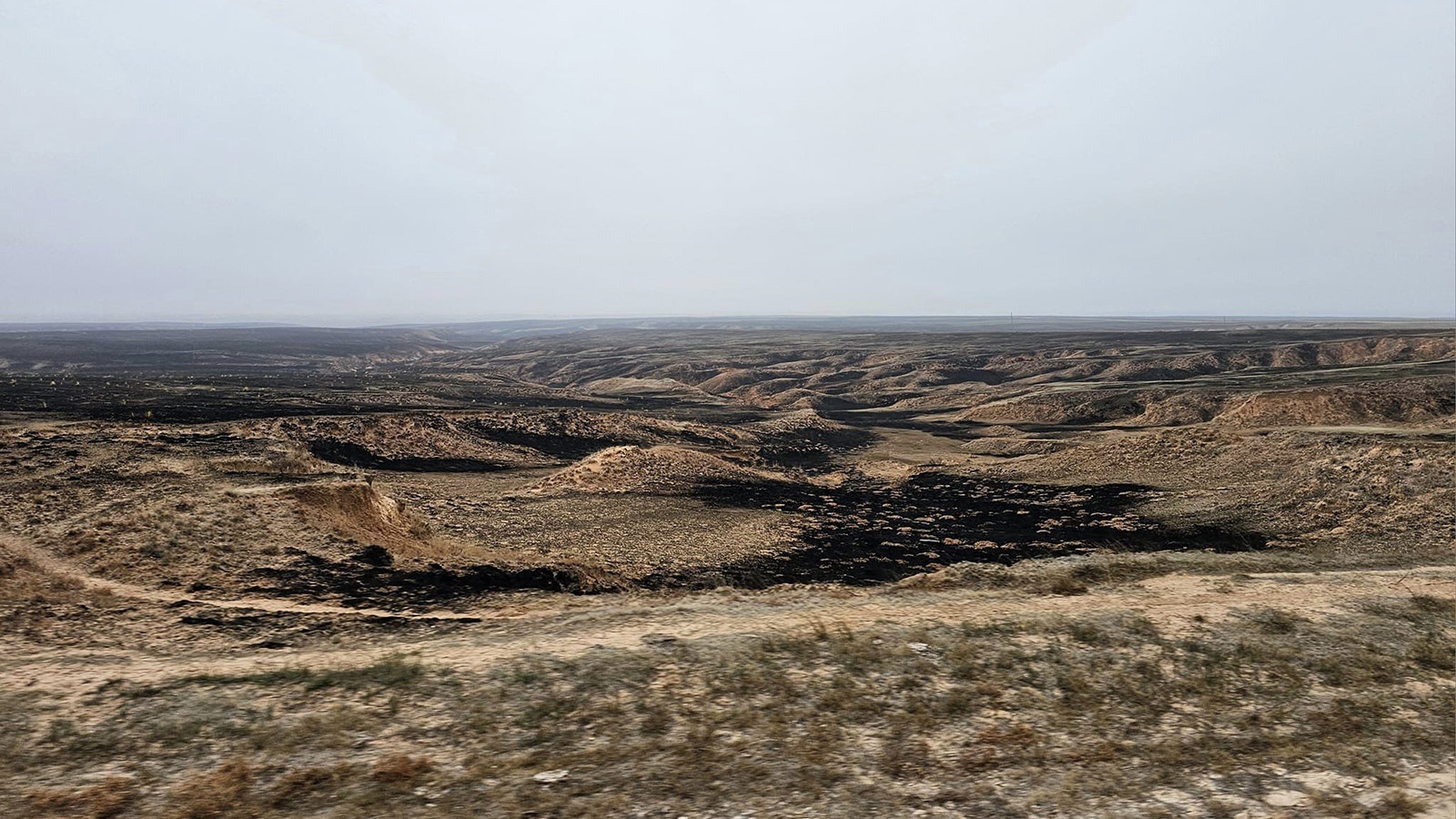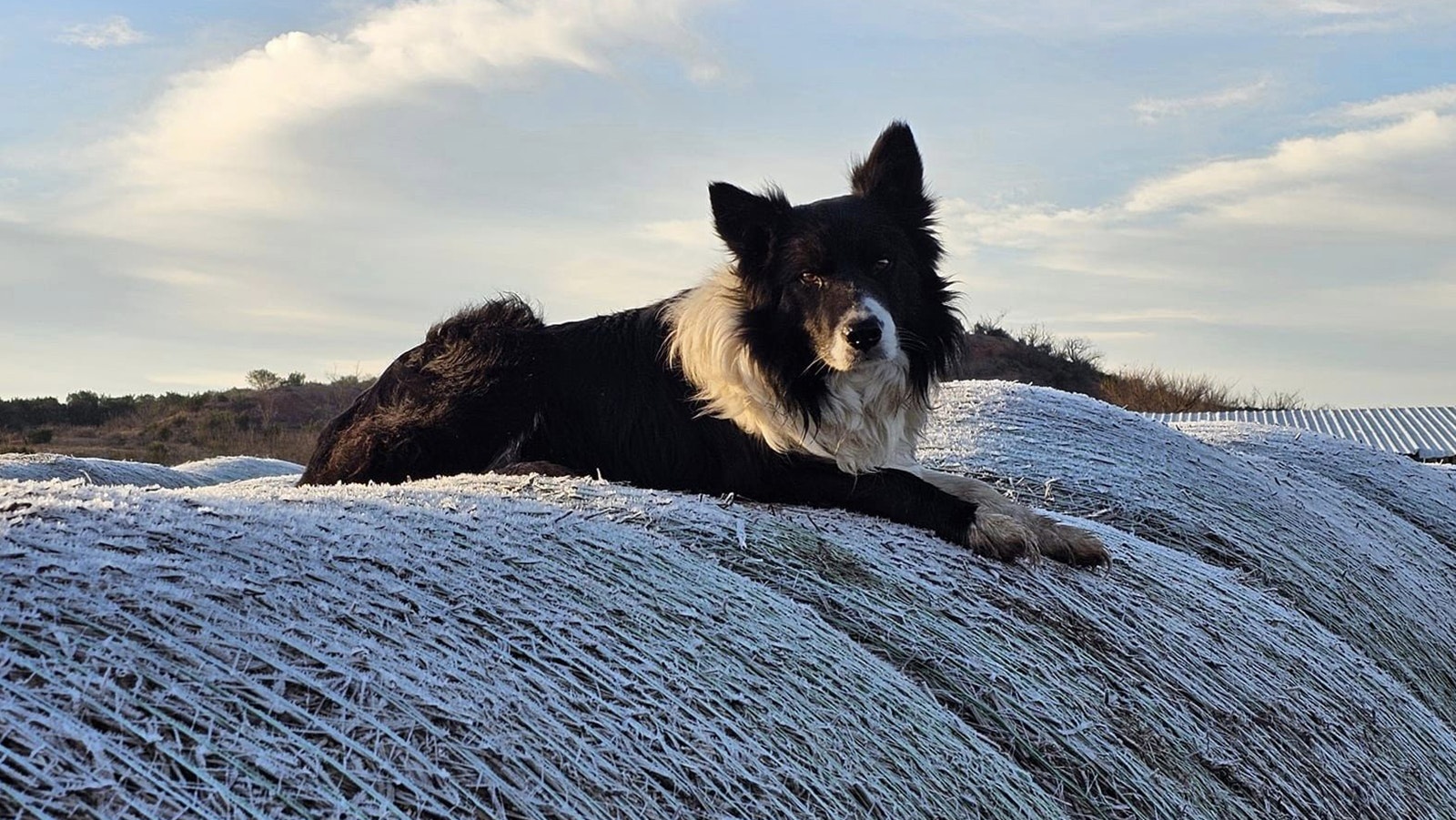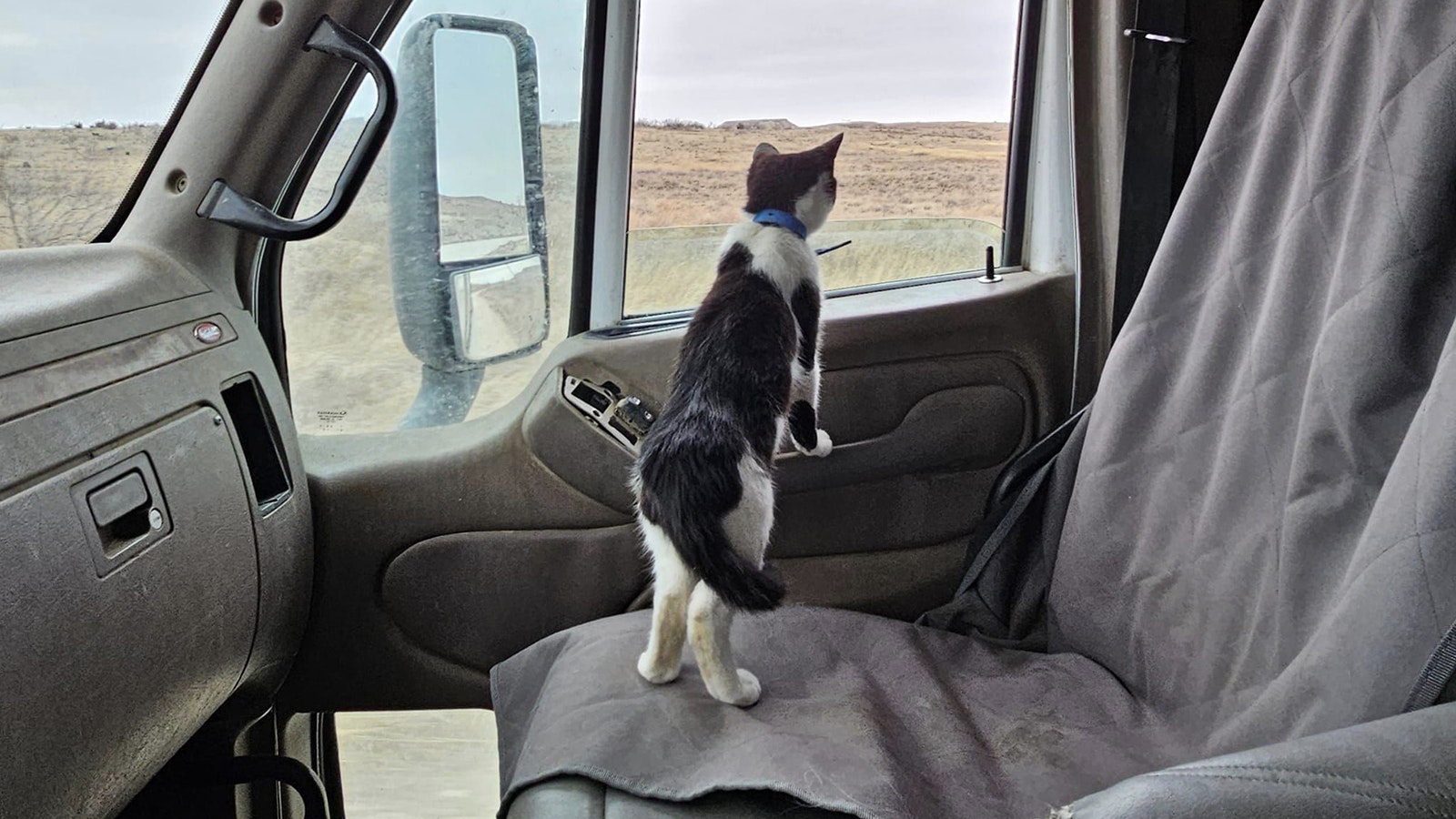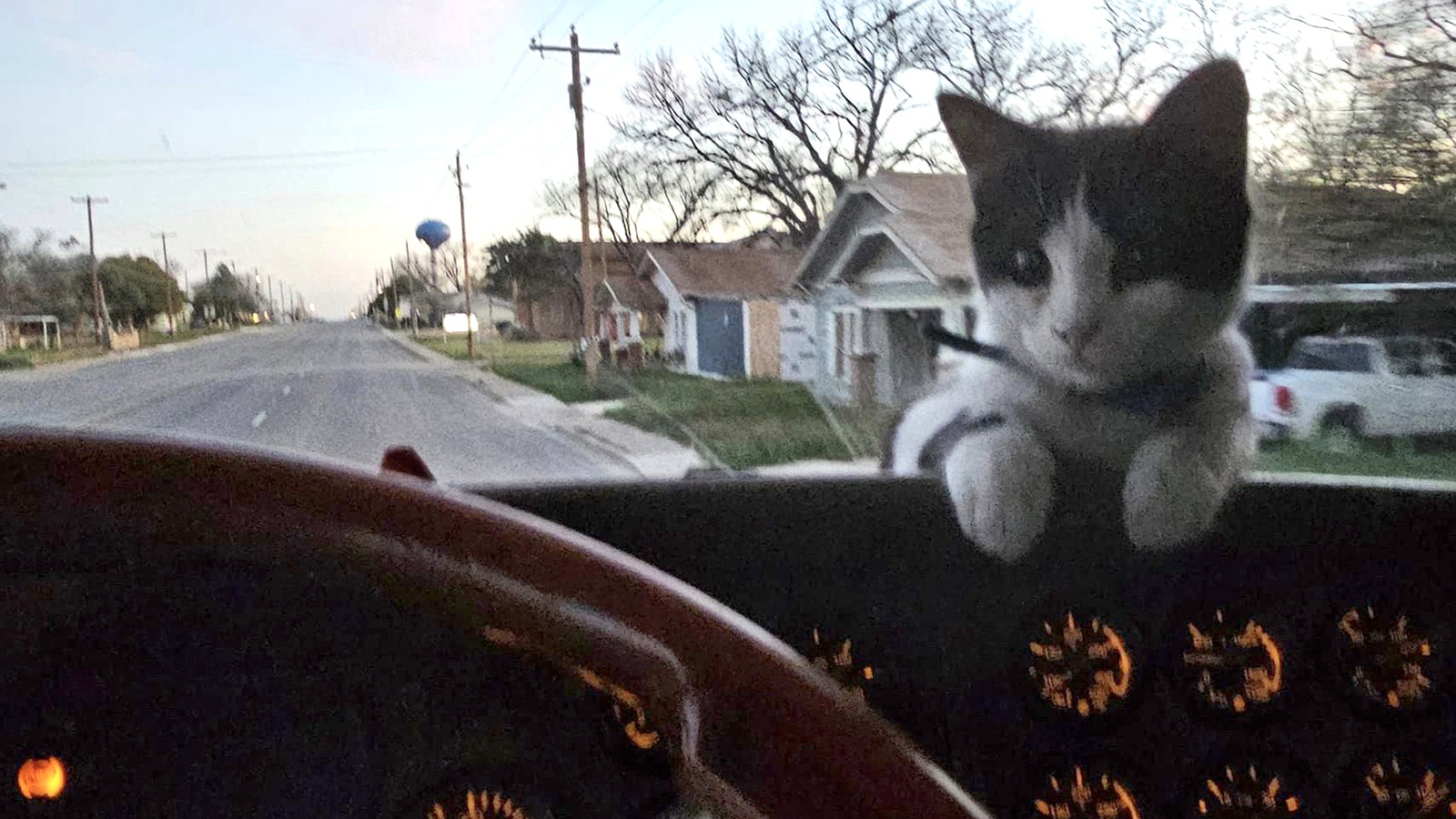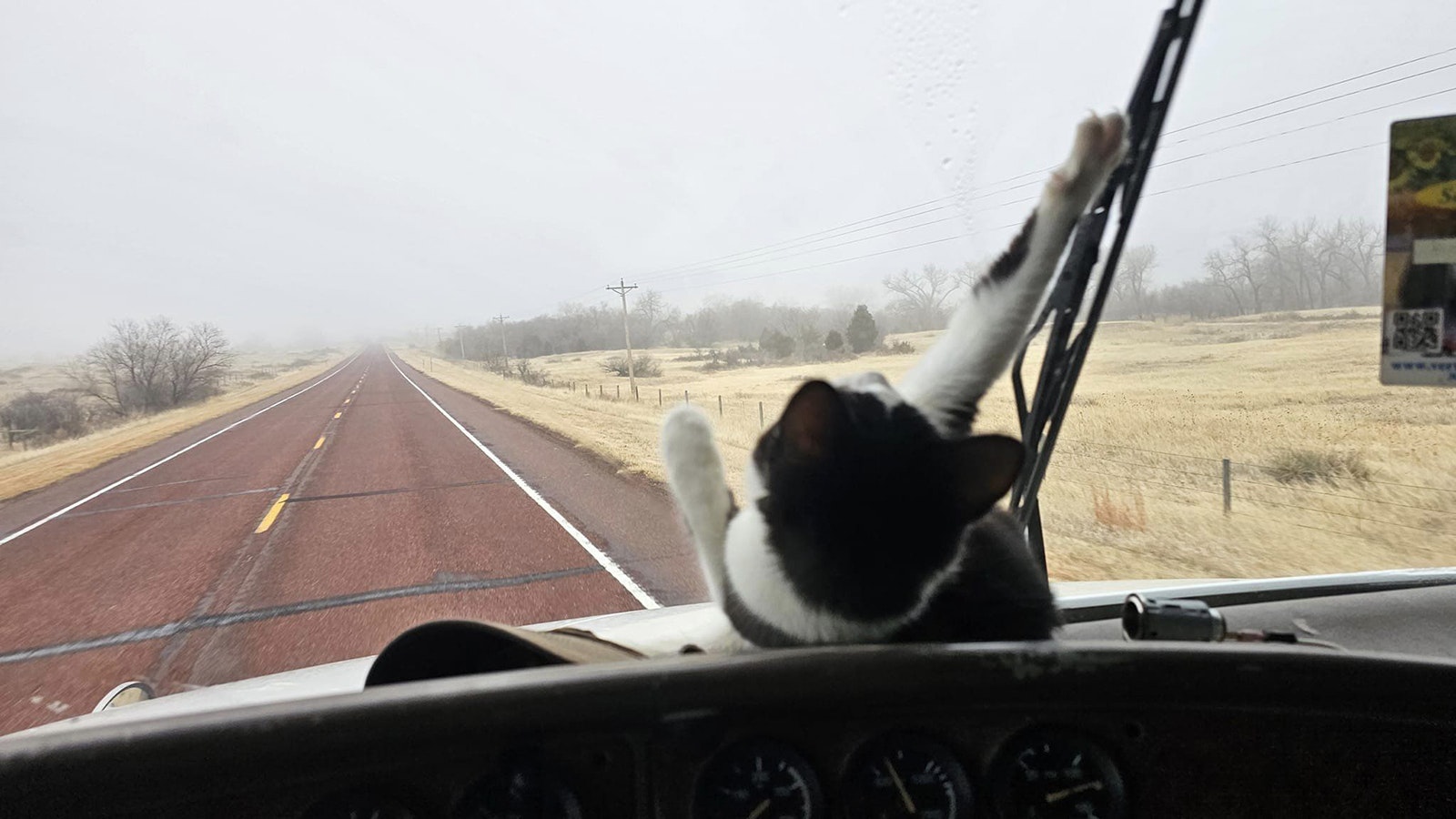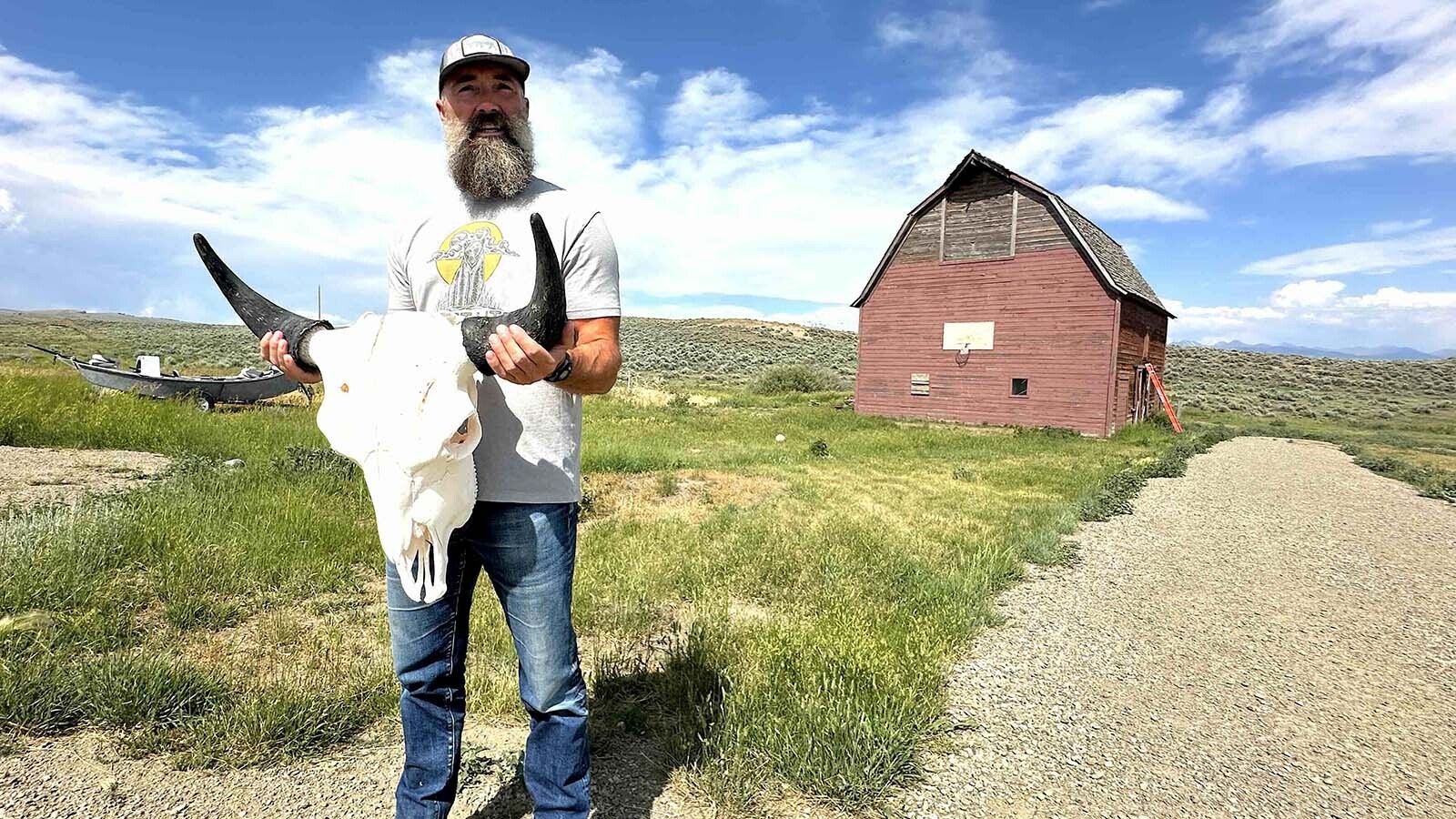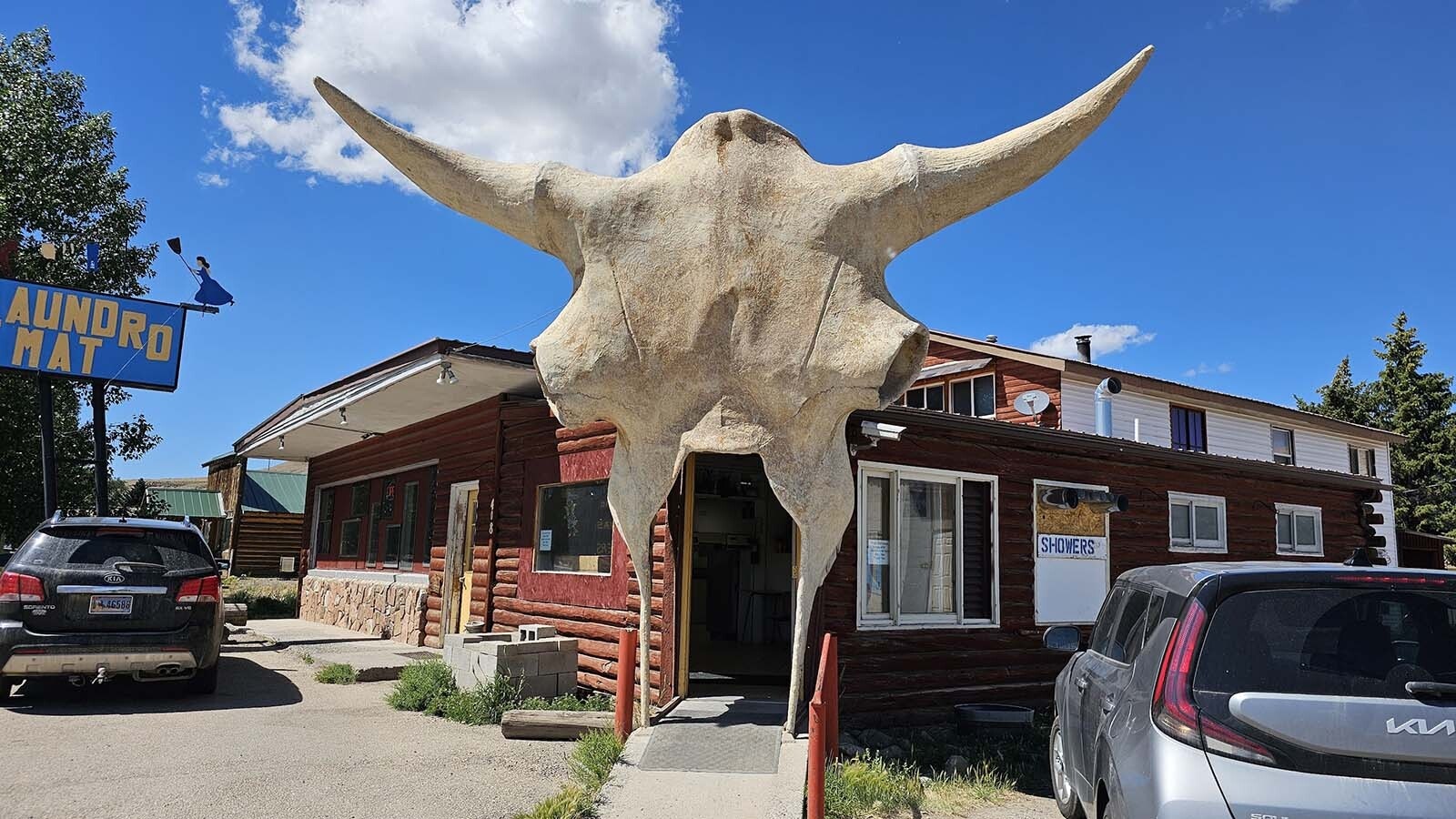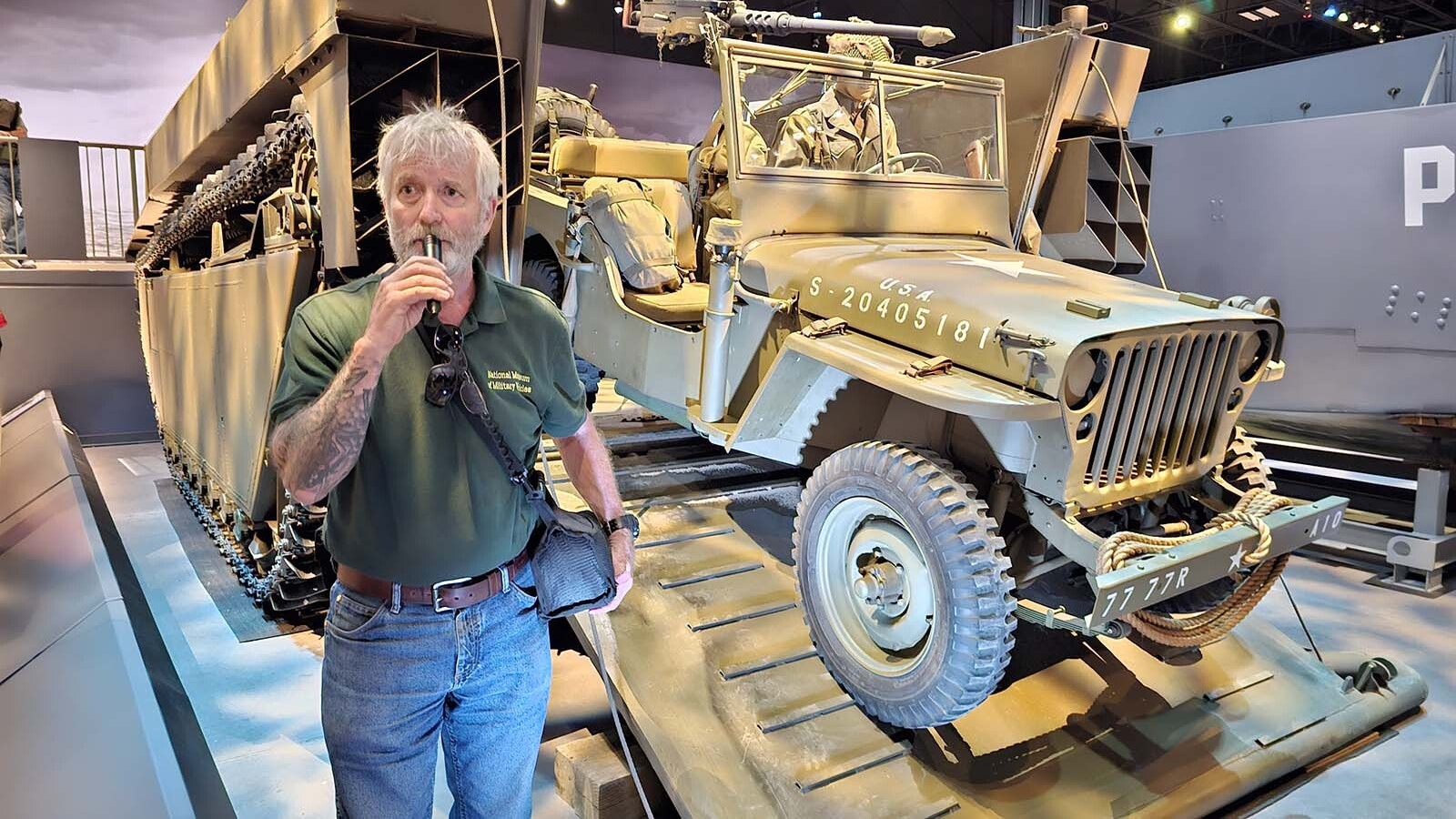Dottie Packard has tried to take pictures of what she’s seeing in Texas while she’s been dropping off loads of hay and other donations from Wyomingites, but the photographs can’t quite translate the devastation of what she’s seeing.
“When you come up on top of a hill and you’re about to drop down into a valley, you can see across there and you can tell it’s 20 or 30 miles across,” said the Hawk Springs, Wyoming, resident of the huge swaths of ranchland burned by series of wildfires. “And you can see how much is burned because it’s black and dark and it doesn’t look right.”
Sagebrush has been burnt lock, stock and barrel to the ground and whole telephone poles are burned all the way through, laying on the ground a charred wreck.
But a camera can only capture a tiny sliver of all the burned-up landscape. The Smokehouse Creek Fire complex has burned 1.1 million acres — an area the size of Rhode Island — in northeastern Texas. No camera can take all that in.
The fire is now 89% contained, according to the latest report on the Texas A&M Forest Service page, and has entered the record books as Texas’ largest wildfire. It started just north of Stinnett, Texas, in the Panhandle.
“Pictures don’t do what’s happened in Texas any justice at all,” Packard told Cowboy State Daily. “You have to be there to see just how devastating it is.”
And you have to stand in a burned-out field, with the smell of smoke all around, talking to people who have lost everything to fire.
An Accidental Convoy
Just a few days ago, Packard couldn’t have imagined herself in Texas at all.
She lives in rural eastern Wyoming south of Torrington, where she and her husband have a business hauling cattle, and Texas is pretty far away from all that.
But one day last week as she was out and about doing chores in the Torrington area, she happened to see a couple of Facebook posts about wildfires in Texas. She almost couldn’t believe what she was seeing.
Suddenly, Texas seemed a lot closer to home.
She had to do something to help these fellow members of the American agriculture community, but Packard and her husband don’t have tons and tons of hay to donate.
What they do have is a truck and some time and, with the shortage of CDL drivers across the nation, she realized that’s a lot.
“Right now is kind of our slow time,” Packard saied. “So, I have some time, and I thought I could afford to make at least one trip down there, you know, on a donation basis — or maybe two — and see what happens.”
She never intended her idea to go any further than that. She made a little post on Facebook, thinking maybe she’d get one or two messages.
Instead, the post blew up. She was deluged with messages, texts and phone calls from people all over the region who wanted to fill up her truck, and a few more besides with donations.
Next thing she knew, the M Lazy Heart Feed Store south of Torrington was posting a discount on products going to Texas to fill up volunteered trucks from the region, and someone else had paid for a radio spot to advertise the deal.
Then the Venmo she started for fuel donations blew up as well, swelling to $3,000, making it possible for Packard and the other volunteer drivers to make more than one trip.
“It just kind of snowballed,” Packard said. “And I’ve even had a couple of ladies in Cheyenne that want to send some feed and dog food and whatever else they can. I don’t even know them.”
And Chugwater, Too
Word of the fundraiser also reached Chugwater, a town of 167 that describes itself as a little town with a big heart.
You betcha.
Little old Chugwater is surrounded by cattle ranching families and has a long history that’s all tangled up in Wyoming’s storied cattle ranching heyday.
That had a lot of residents talking about and wondering what they could do to help people in Texas.
In the midst of all that wondering, Jesse Miller, co-owner of the Tri-County Mercantile in Chugwater, got a call from someone who’d heard he was involved Packard’s effort.
“It wasn’t me,” Miller told him. “But I’d like to be.”
The Millers, in fact, had just received a new pallet of salt blocks for the Tri-County Mercantile right about then. They hadn’t even been unwrapped yet. They were clearly just ready and waiting to be loaded on a truck and sent on their way to Texas.
On Wednesday morning, co-owner Joshua Hopkins helped local rancher Bill Aistrope load the salt blocks on his truck, and then Aistrope took off to join Packard’s little convoy of six trucks in all headed to Texas from Goshen County.
Also among these drivers were Scott Ross, Ray Bevers, and someone named Brandon with Rawhide Logistics, Packard said.
Even More Pours In
Packard is planning a couple of side trips to Kansas and Oklahoma to pick up some hay before returning to the Torrington area to load up the additional donations that are continuing to pile up for Texas.
“I’m going to keep coming down to Texas as long as I have the money to keep doing it,” she added, determined after seeing firsthand the impact these efforts are having in Texas.
“This guy, he’s probably in his 50s, and we had unloaded hay for him and were just standing around talking for a little bit,” she said. “And I’m looking around and I can see it is just burned all around him.”
As they talked, the Texas rancher teared up, and so did Packard.
He kept telling her what a blessing it was to have people like her helping them like this. But then he said something else that really struck Packard’s heart.
“I said, ‘I hope you guys come out of this,’” Packard said. “And he says, ‘Well, this is just another setback. But we’ll get through it because of all of you.’”
Packard was so touched by that she started to think about how often Wyoming itself has wildfires.
“This could just as easily have been us,” she said. “Colorado was on fire last year, and there’s times that Wyoming has been on fire.”
There was the recent Horse Creek fire in Cheyenne, for example, that forced an evacuation of residents for a time, and the Prairie Center fire a couple of years ago.
“That thing just took off,” Packard said. “There was 40, 50 mph wind that day, and the fire crews running down the county road could not get out in front of the fire, it was moving that fast.”
It all makes Packard glad she’s been part of the efforts to help fellow American ranchers in Texas. No matter how far away, a neighbor in need is still a neighbor indeed.
Renée Jean can be contacted at renee@cowboystatedaily.com
Renée Jean can be reached at renee@cowboystatedaily.com.

